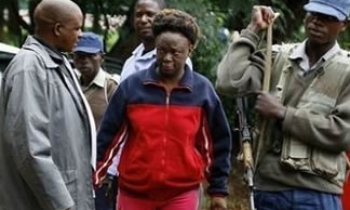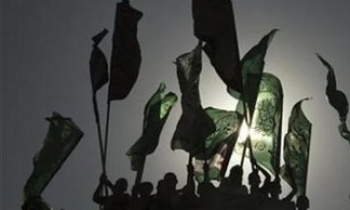Blogger Josh Wolf now holds the troubling record as the longest-jailed journalist for contempt of court in recent American history. Wolf, who is refusing to comply with a grand jury subpoena for his testimony and video outtakes, has spent 169 days in a federal prison in California as of February 6. He has now spent more time behind bars than author/journalist Vanessa Leggett, who spent 168 days in a Texas federal prison for refusing to comply with a subpoena in 2001.

"It's extremely troubling that we have seen both records set by freelancers who were working hard to inform the public," said Reporters Committee for Freedom of the Press (RCFP) Executive Director Lucy A Dalglish. "Both of these journalists feel very strongly that the public is better served when journalists are not required to become investigators for the government."
“This is one more example of the increasing attacks on confidentiality of sources in the United States, one more blow to investigative journalism and, eventually, to the right for American people to be informed,” Lucie Morillon, a spokesperson for Reporters sans Frontières (RSF) in Washington, wrote in an e-mail message to the New York Times. “This is a bad signal sent to the rest of the world.”
“Wolf videotaped a public demonstration where there may have been an attempt to set a police car ablaze and where a San Francisco police officer’s skull was fractured when he was hit from behind by a demonstrator,” said Luke Macaulay, a spokesman for the United States attorney for the Northern District of California, according to the Times. Macaulay cited six federal decisions in the government’s favour, including one last week that denied a request for a new hearing. “This office has issued a lawful subpoena for legitimate investigative purposes,” he said.
The 24-year-old video blogger and independent media advocate was first jailed for contempt of court August 1 , 2006 when he refused to comply with a federal subpoena. Federal officials want Wolf to testify and to turn over a videotape they claim might contain footage of crimes committed at a July 2005 anticapitalist rally. The protest was timed to coincide with a Group of 8 meeting of world economic leaders in Scotland.

Wolf's lawyers appealed the order of contempt last summer and he was granted bail August 31 pending a decision by a panel of appeals court judges. RCFP filed a friend-of-the-court brief on behalf of Wolf. The panel affirmed the contempt order September 8, and Wolf returned to prison later that month. The full appeals court declined to hear the case, and a new motion for Wolf's release was denied by the trial court in January.
Wolf could remain in prison until the grand jury's term expires this summer or even until early 2008 if the term is extended. Under federal law, the maximum term of confinement for a person cited for civil contempt is 18 months. However, Wolf could be charged with criminal contempt of court as well, which carries separate penalties.
Leggett was jailed on the orders of a federal court in Houston, Texas, on July 20, 2001 for refusing to testify about her research into the 1997 murder of a Texan millionaire’s wife, about which was planning to write a book. Leggett had interviewed the victim’s brother-in-law, who was a suspect, before he committed suicide. She was released on January 4, 2002 after 168 days in prison.
A RSF statement said that readiness to resort to imprisonment in this kind of case increased alarmingly after 9/11, with “national security” often serving as grounds for finding journalists in contempt when they refused to name their sources. Then New York Times reporter Judith Miller spent three and a half months in prison, from July 6 to September 29 2005, for refusing to give her sources in the leaking of a CIA agent’s identity, which was blamed on the White House.
San Francisco Chronicle reporters Lance Williams and Mark Fainaru-Wada are currently under threat of imprisonment by a federal judge for refusing to reveal their sources for leaks about an investigation into the use of performance-enhancing drugs by athletes – a case that could not be further removed from national security. Their appeal is due to be heard on March 5.









